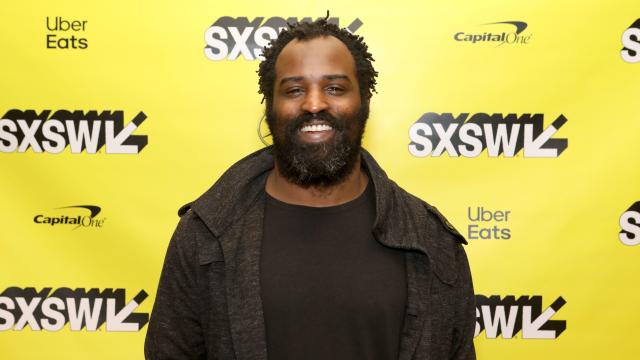Ricky Williams talks mental health, cannabis & life after football
NFL legend Ricky Williams joins Charles Robinson on You Pod to Win the Game to discuss his life since hanging up the cleats, mental health in sports & launching his cannabis lifestyle brand Highsman.
Hear the full conversation on You Pod to Win the Game. Subscribe on Apple Podcasts, Spotify or wherever you listen.
Video Transcript
[MUSIC PLAYING]
CHARLES ROBINSON: We are here with "You Pod to Win the Game" with Ricky Williams, all pro running back, Heisman Trophy winner, visionary behind Highsman, which is a cannabis lifestyle brand spelled H-I-G-H-S-M-A-N. I want kind of hit you with this off the top.
Let's say the rules had been different. You play in the NFL, say, 15 years, which would be a remarkably long career for a running back. But let's say, you play 15 years. You go in the Hall of Fame, I guess, prototypical more sort of Hall of Fame path for a running back. Would you have been a happier person right now than you are?
RICKY WILLIAMS: No, I don't think so. But it's interesting because we all exist in a certain time period. And so people say, if I was born 10 years later or 10 years earlier. And there's some reality to that. But the other reality is the people that were born 20 years ago, 30 years ago, 50 years ago are the front runners in the forerunners that got us to where we are now.
And so if I was born 20 years later, then I probably would be able to do all of the things that I wanted to do and still be a football player. But when I was playing 10, 15 years ago, it wasn't possible. But I like to think because of what I did 15 years ago that it's made possible now for players to be able to do that.
CHARLES ROBINSON: You first started to really study yoga and astrology and a wide variety of different things. Doesn't football kind of infringe on that?
RICKY WILLIAMS: It seems like in a lot of different ways football players are encouraged to be human beings. It seems like the NFL and the Sports Leagues are starting to realize the more we can humanize our athletes, it's better for business.
And I think the past is being a professional athlete was so intrusive on any other aspects of your life that you saw people that it was manifesting issues because we weren't expecting to be humans. We're expected to be machines. I think the more we can humanize athletes, it actually empowers us to be more effective and better role models.
CHARLES ROBINSON: And I remember hearing you talk about just the mental aspect of, like how much people might be kind of missing the reality of how much mentally this can help, not just football players, but really anybody individually. Can you talk a little bit about that, just why people seem so focused on the physical end of it? But I've often heard you talk about the mental end of it.
RICKY WILLIAMS: Yeah, I mean, another buzz phrase the past several years, especially relative to athletes, is mental health. Back when I played over 20 years ago, I had a conversation on Fox Sports about struggling with social anxiety disorder. And back then people were blown away.
And it's still kind of taboo for our heroes, sports stars, to have mental health issues. We're allowed to have broken arms and physical issues. And so when we think about what is allowed, it's more comfortable to talk about how cannabis can be helpful for the physical stuff.
But from my experience, it's like, physical pain sucks, but it doesn't come anywhere close to mental and emotional pain. And so yes, cannabis did help me not have to take so many NSAIDs and pain pills. But for me, the greatest relief I got was getting my mind right.
CHARLES ROBINSON: I remember I was covering the league at the time where the early retirement initially happened and just the way it was absorbed, the way people processed it and the criticism and the anger. Are we further away from that? Does it feel like we are? Or is that just kind of bull-[BLEEP]?
RICKY WILLIAMS: We'll always be growing further from that, hopefully. And you see as the longer we live, our perspective keeps changing. As we get older, we're going to keep seeing things change more and more. And I think that's what I love about growing older, is that not only things that we see in the world, but I'm so much less crazy than I was when I was younger.
And the world is less crazy. And I think we can appreciate that. But I'm at a point now where I'm more interested in being part of the world becoming less crazy. And that was the impetus for starting Highsman. And it's like, when are we going to start to allow what we know in our own experiences of life to be more valuable than bull-[BLEEP], other people's judgments and all that other stuff?
And that's my only thing about cannabis and the lifestyle brand. Our tagline is Spark Greatness. But then I realized, you can't be great if you're caring too much about what other people think and you're not trusting your heart. It's about just encouraging people to be great and reminding people that can't be great unless you're willing to trust your heart. And for me, cannabis helped me contact my heart and learn to trust it.








